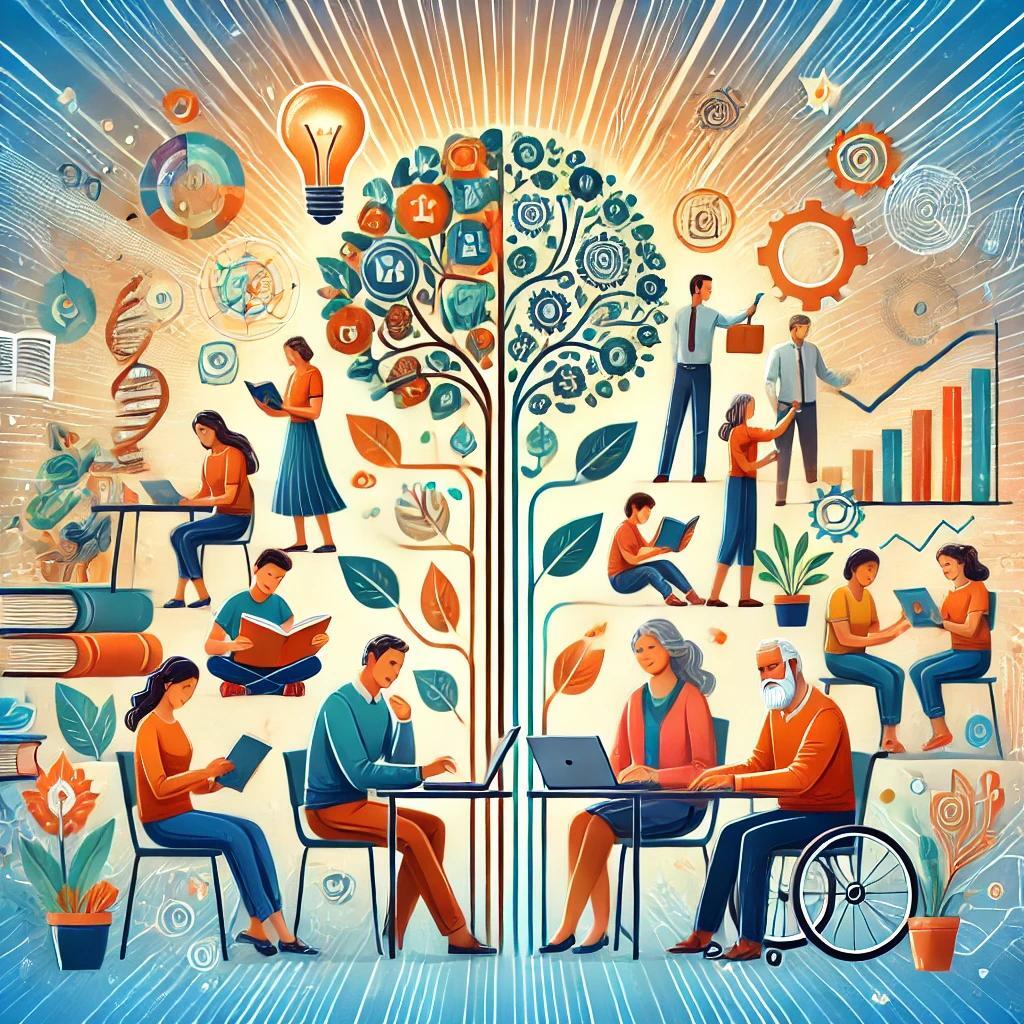
Tuesday, July 2, 2024
The beautiful thing about learning is that nobody can take it away from you.
Never Stop Learning: The Lifelong Journey of Curiosity
Imagine a world where you stop learning after you finish school. It sounds dull, doesn’t it? Learning shouldn’t end when you graduate. It should be a lifelong adventure. Lifelong learning is about continuing to learn new things throughout your life. This article will show you why lifelong learning is so important and how you can make it a part of your daily routine.
Think about how exciting it is to discover something new, whether it’s a fascinating fact, a new skill, or a fresh perspective. This sense of discovery doesn't have to end when formal education does. Lifelong learning keeps your mind active, opens doors to new opportunities, and enriches your personal and professional life. It keeps you curious and engaged, constantly fueling your passion for knowledge and growth. In a rapidly changing world, the ability to adapt and learn continuously is not just beneficial—it's essential. Let's explore the many benefits of lifelong learning and how it can transform your life.
The Importance of Lifelong Learning
Lifelong learning means being curious and seeking knowledge beyond the classroom. In today’s fast-paced world, things change quickly. New technologies, new discoveries, and new skills are always emerging. To keep up, we need to be lifelong learners. Think about famous inventors like Thomas Edison or tech giants like Bill Gates. They never stopped learning, and their curiosity led to incredible achievements.
Cognitive Benefits
Keeping your brain active is like exercising your muscles. Lifelong learning helps your brain stay sharp and healthy. Studies show that learning new things can delay cognitive decline and reduce the risk of dementia. When you challenge your brain, you keep it strong. Activities like reading, puzzles, or learning a new language stimulate your brain and keep it engaged.
Professional Advantages
In the workplace, skills can become outdated quickly. Lifelong learning helps you stay current and competitive. Employers value workers who are always learning and improving. This can lead to better job opportunities and career advancement. For example, someone who learns new computer skills can take on more challenging tasks and may even earn a promotion.
Personal Growth and Fulfillment
Lifelong learning isn’t just about professional benefits; it’s also about personal satisfaction. Learning new things makes life more interesting and enjoyable. It boosts your self-confidence and makes you feel accomplished. Whether it’s learning to play an instrument, picking up a new hobby, or understanding a complex topic, the sense of achievement is fulfilling.
Social and Emotional Benefits
Learning isn’t something you have to do alone. Joining a learning group or community can help you make new friends and feel connected. It can improve your emotional well-being and make you happier. Learning together with others creates a support system, making the process fun and encouraging. It also helps you become more resilient and adaptable to life’s challenges.

How to Cultivate a Lifelong Learning Habit
Making lifelong learning a habit might seem challenging, but it’s easier than you think. Start by setting learning goals. What do you want to learn? Create a plan to achieve those goals. Explore different learning methods. You can take online courses, attend workshops, read books, listen to podcasts, or watch educational videos. Find what works best for you.
Time management is key. Even with a busy schedule, you can find time for learning. Dedicate a few minutes each day to read or watch something educational. You might be surprised at how much you can learn in a short amount of time.
Overcoming Barriers to Lifelong Learning
Everyone faces obstacles when it comes to learning. You might feel like you don’t have enough time, resources, or motivation. But there are ways to overcome these barriers. If you lack time, try learning in small chunks. Use free resources like libraries, online courses, or community centers. Stay motivated by setting small, achievable goals and rewarding yourself when you reach them.
Having a growth mindset is important. This means believing that you can improve and learn new things, even if it’s challenging. Embrace mistakes as part of the learning process and keep pushing forward.
Conclusion
Lifelong learning brings many benefits. It keeps your brain healthy, helps you succeed at work, and makes your life more enjoyable. It connects you with others and boosts your emotional well-being. Start your lifelong learning journey today. Set goals, explore new topics, and never stop being curious. The world is full of knowledge waiting to be discovered.
Embracing lifelong learning also means embracing change and staying adaptable in the face of new challenges. As the world evolves, so do the skills and knowledge required to navigate it successfully. By committing to continuous learning, you prepare yourself to meet these challenges head-on, equipped with the latest insights and abilities. Moreover, lifelong learning fosters a growth mindset, encouraging you to see failures as opportunities to learn and grow rather than setbacks. This positive approach can lead to a more resilient, fulfilled, and purposeful life. So, dive into the adventure of lifelong learning, and let curiosity be your guide on this endless journey of discovery and growth.
Additional Resources
To help you get started, here are some resources:
- Books: “Mindset” by Carol Dweck, “The Power of Habit” by Charles Duhigg
- Websites: Coursera, Khan Academy, TED Talks
- Online Courses: Udemy, edX, Skillshare
- Local Resources: Check your local library or community center for free classes and workshops.
Remember, the journey of lifelong learning is a path to a more fulfilled and engaging life. Stay curious and keep exploring!

